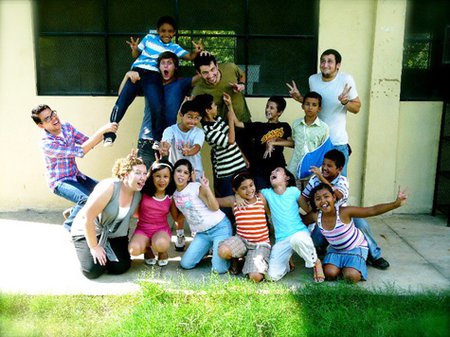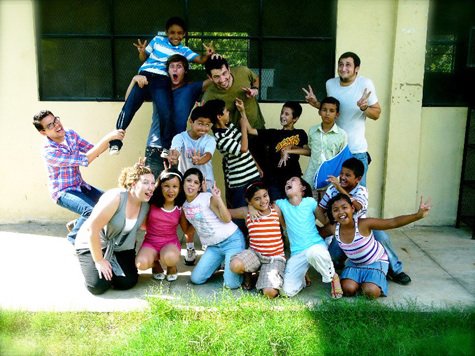Undergrad Finds New Inspiration in Honduras
When Giulio Rottaro elected to take a year off from his physics studies at Caltech to teach kids with special needs in rural Honduras, his parents, along with many of his peers, questioned his choice to leave school.
"My decision to spend a year as a volunteer was met by quite a bit of resistance," he says. "Everyone was asking the same question—'Why?'"
But for Rottaro, who is now back in Pasadena and completing his senior year, it just seemed like the right thing to do. As a native of Venezuela, he attended a bilingual school as a young child and felt a strong desire to give something back to a similar community.
"In retrospect, I guess being a bilingual teacher is such a huge sidestep from physics, but I figured it was my own unique way of feeding my will to do charitable work," he says.
So, in July of 2010, he set out for Cofradia, a small town in northwestern Honduras that is home to a bilingual school operated collaboratively by locals and a nonprofit organization called Bilingual Education for Central America (BECA). Through BECA, Rottaro received housing and training, and was assigned to work with kids in kindergarten through ninth grade who have special needs. His duties included creating individualized education plans, providing after-school tutoring, and developing a grammar component for the English curriculum. But Rottaro says he quickly became motivated to apply his skills beyond his day-to-day tasks.
"The children gave me so much inspiration to dedicate every minute of my life to them," he says. "I wanted to turn the school into an institution comparable to private schools in the US. I used all of my skills as a Caltech nerd to improve the school's computer lab, science lab, science curriculum, library computer system, Internet access, grammar curriculum, and more."
In fact, he has continued working to improve the school ever since his term of service with BECA expired at the end of the school year. In August, he flew back to Cofradia to install eight new computers that were purchased by a generous donation solicited by Rottaro and his adviser at Caltech, physics professor Harvey Newman. They are waiting for a matching gift that will allow them to purchase even more equipment for the lab. Currently, in collaboration with the Caltech Y, Rottaro is organizing an Alternative Spring Break trip to the school, during which Caltech undergrads will help students with their English and make improvements to the computer lab.
"When spring break students visit the school, it's really great for the kids because they get a full week of solid English exposure," he says. "The Techers may be able to teach some special classes and definitely will have a chance to talk to the kids and get them interested in science."
The trip is set for March 16–26. Caltech students will stay in the homes of local residents and spend a week volunteering at the school. To help offset the costs of the trip, Rottaro is organizing a "Zombie 5K" fundraiser, which will take place on campus on January 21. Participants can sign up as either a human or a zombie runner, and prizes will be given for the best costumes, "fastest survivor," and more.
"Before I went to Honduras, I never felt like I had a greater purpose. Now I have found my source of inspiration: helping others," says Rottaro. He plans to attend medical school next year.
For additional information on the 2012 Alternative Spring Break trip to Honduras, visit //www.caltechy.org/programs_services/commservice/asb/index.php. To learn more about the Zombie 5K, or to become a participant, go to www.caltechy.org/support/events/fundraiser/.
 Caltech senior, Giulio Rottaro (far left), plays around with kids and other volunteers at a bilingual school in Honduras, where he spent a year as a volunteer teacher.
Caltech senior, Giulio Rottaro (far left), plays around with kids and other volunteers at a bilingual school in Honduras, where he spent a year as a volunteer teacher.

